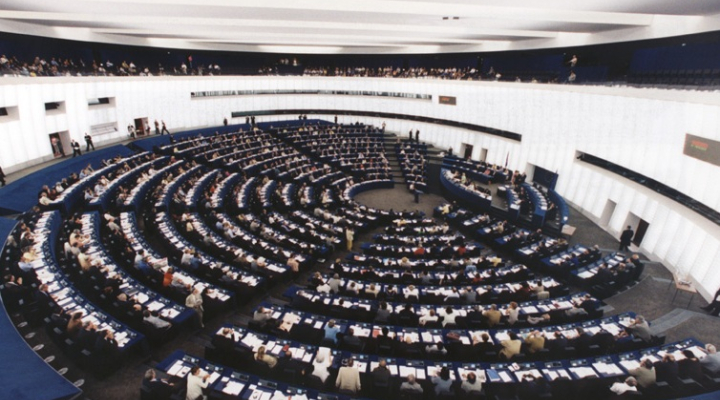Focus on social issues
On the 25th of October MEPs unanimously voted Dr. Ádám Kósa’s report on mobility and inclusion of people with disabilities and the European Disability Strategy 2010-2020. The report commonly known as the one for an „inclusive society” has a wide support and has been debated by the employment committee of the European Parliament.
The report is based on statistics that speak for themselves : there is one person with some form of disability in every fourth family in the EU, people with disabilities have 50% less chances to get into upper education and the unemployment rate is two or three times higher amongst them. 16% of EU citizens live with some form of disability, their lives are made more difficult by restrictions when it comes to access to some services and in obtaining employment.
The document can be found here: http://www.europarl.europa.eu/sides/getDoc.do?pubRef=-//EP//TEXT+REPORT+A7-2011-0263+0+DOC+XML+V0//EN
The rapporteur also has a disability; he is the first hearing impaired member of the EP. He broadened the European Commission’s strategy referring to people living with disabilities and approached their position from a human rights point of view. Ádám Kósa made reference to the EU Charter of Fundamental Rights and the UN Convention on people with disabilities and urged for equal access to services and the improvement of employment rates with special attention to the tragic situation in the Eastern member states.
DAHR’s MEP Csaba Sógor, who is also a member of the Employment and Social Affairs Committee of the European Parliament explained his vote in order to express his point of view. He said that the most important aspect of the report is that it broadens equality of chances towards people with disabilities. Making an analogy, he said that the solution to the rightful claim of national minorities is also urgent.
Here follows Csaba Sógor’s speech:
“I would like to point out the thoughts about equality of chances from my colleague’s many rightful remarks. The report states that equality of chances does not mean that everyone is given equal chances because true equity is when equal effort yield equal results for all.
In the case of autochthonous national minorities that have a different language than their country, we can only talk about equality of chances if they can conduct their studies and prevail in life under the same conditions as the majority nation, but using their mother tongue.
People with disabilities and the elderly are in a multiply disadvantaged, but the members with disabilities of the autochthonous national minorities are in the same situation. Equality of chances therefore means positive discrimination for those who suffer disadvantages under the same circumstances.”
The EP also debated on the 25th of October about the commission statement on the Surge in job dismissals in Europe as a result of the economic crisis, in particular at Arcelor and Nokia. With regard to the document, MEP Csaba Sógor called his colleagues’ attention to the situation created after the closing of the Nokia assembly plant in Jucu, Romania. He urged the Commission to take decisive action to counteract the negative consequences of the exodus of large companies from Easter Europe.
As it is known, the production will cease at the end of the year at the Nokia assembly plant and 2200 people will be left unemployed. The company is closing the factory because it has a lower efficiency that its Asian counterpart. The Romanian branch of Nokia has already closed its research facility in Cluj where 120 specialists had worked.
Here follow the MEP’s remarks:
“Madam President! I would like to put forward that I own two Nokia mobile phones and I will continue to buy Nokia phones in the future, but we need to decide whether we represent the interest of bank and large companies or those of the citizens, profit or employment. Nokia will go to Asia and then we can speak under the heading of “human rights in the world” in order to complain about the fact that Asian people are being worked for minimal wage or less. The least the company needs to do is repay the governmental subsidies, if it has acquired them.
I have the same question as my colleague, Mr. Matula: what are the Commission’s intended measures to counteract the situation created by Nokia in Eastern Europe, just like many other companies before it?”











